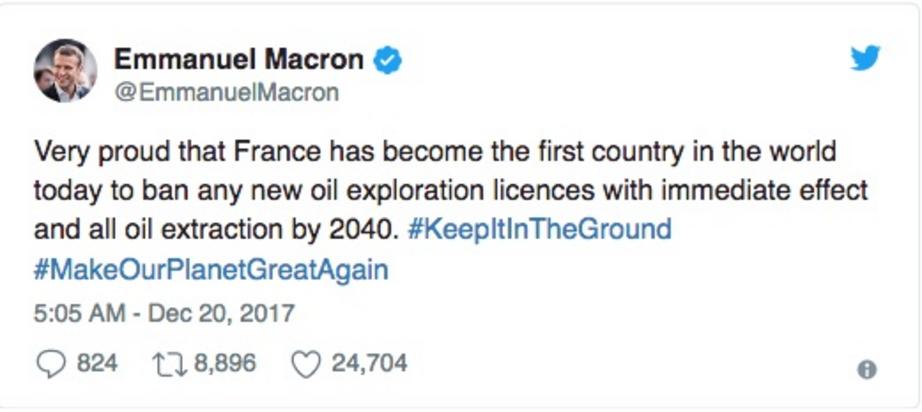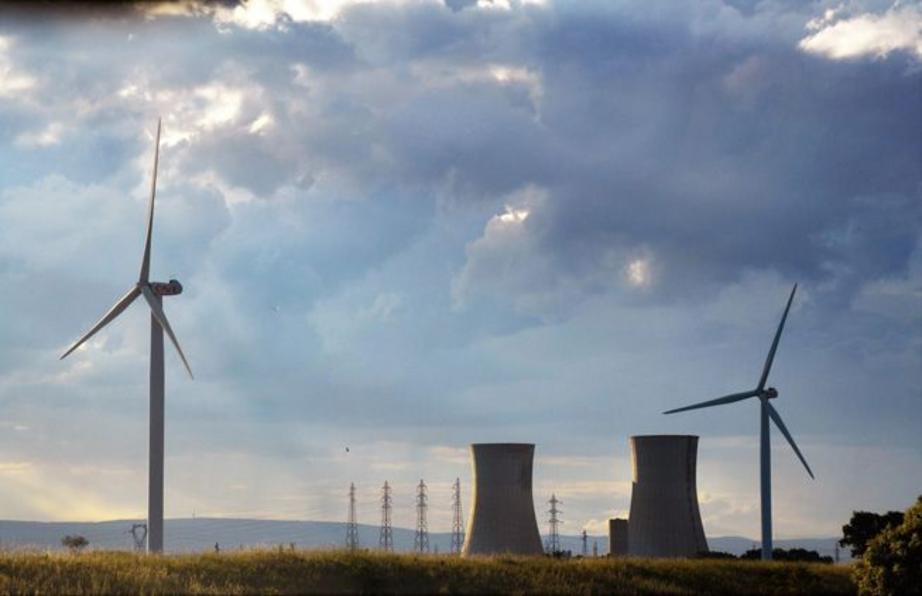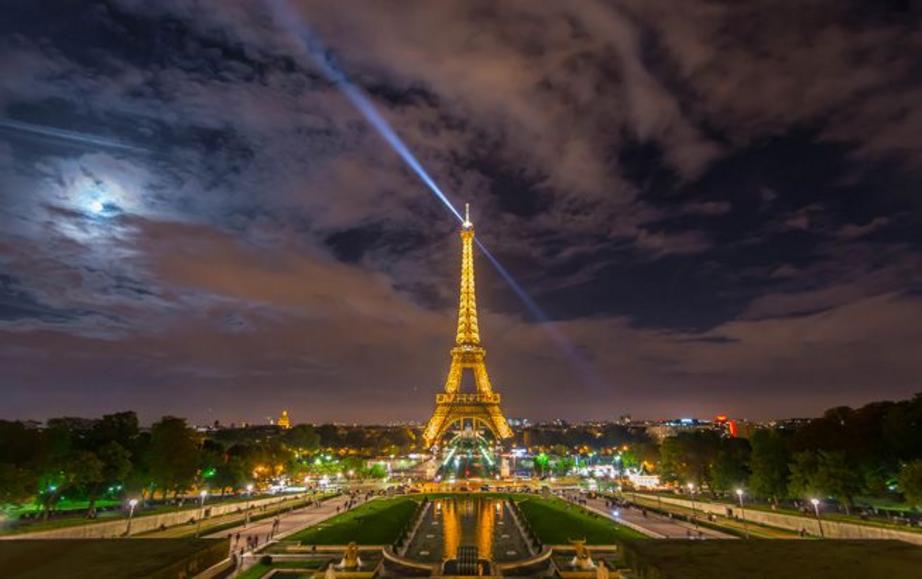France to ban all oil and gas production by 2040
France's parliament approved legislation on Dec. 19 that would ban all exploration and production of oil and natural gas within its borders and its territories by 2040.
Drilling permits that are already in place will not be renewed by the country, and no new licenses to explore potential extraction and drilling sites will be granted.
French President Emmanuel Macron enthusiastically greeted the news on Twitter:

More than just symbolic
It's easy to view this legislation as little more than an empty gesture on behalf on the French government. The country imports 99 percent of its oil and gas, producing only the remaining 1 percent. Socialist lawmaker Delphine Batho hoped the ban would be "contagious" and catch on in other countries that drill for oil and gas within their borders.
Seeing this legislation as symbolic, however, ignores the fact that France seems to be putting its money where its mouth is regarding its desire to safeguard to the environment.
As Discovery Magazine's Erik Klemetti points out, France has upward of 222 million barrels of unconventional oils and another 2 trillion cubic feet of unconventional natural gas in the Paris Basin. Accessing both of these potentially lucrative energy sources — Klemetii posits there could be between $11 billion and $270 billion of oil and gas in the ground, based on current oil prices — would require fracking.
Klemetti says that much oil and gas could cover France's needs, at current import levels, for between five and 100 years. Instead, the ban essentially locks away all of that oil and natural gas in favor of reducing the country's CO2 footprint and forcing the country to rely more on renewable energy.
Part of a larger plan

France's energy goals are ambitious, and they may require some flexibility when it comes to reducing their reliance on nuclear energy. (Photo: Jeanne Menjoulet/flickr)
As such, the ban follows in the footsteps of other initiatives set by Macron's government in curbing greenhouse gas emissions and fulfilling France's commitment to the Paris Climate Agreement.
Last month, France published new renewable energy installation targets. The goal is to produce between 69,980 and 76,743 megawatts of renewable energy by 2023 from off- and on-shore wind, solar and hydroelectric sources.
Earlier this year, Macron's government announced plans to ban the sale of petrol- and diesel-powered cars in the country by 2040.
During his campaign, Macron declared he would close all coal power plants in the country by 2022 and continue the plan of his predecessor — François Hollande — to reduce the presence of nuclear energy in France to 50 percent by 2025. Macron may have backtracked on this campaign pledge a bit Dec. 17 during a European climate summit when he hedged on following Germany's lead in closing its nuclear plants.
"What did the Germans do when they shut all their nuclear in one go?" Macron said. "They developed a lot of renewables but they also massively reopened thermal and coal. They worsened their CO2 footprint, it wasn't good for the planet. So I won't do that."
Nuclear energy currently accounts for about 75 to 80 percent of France's electricity production.
For the rest of this article please go to source link below.

